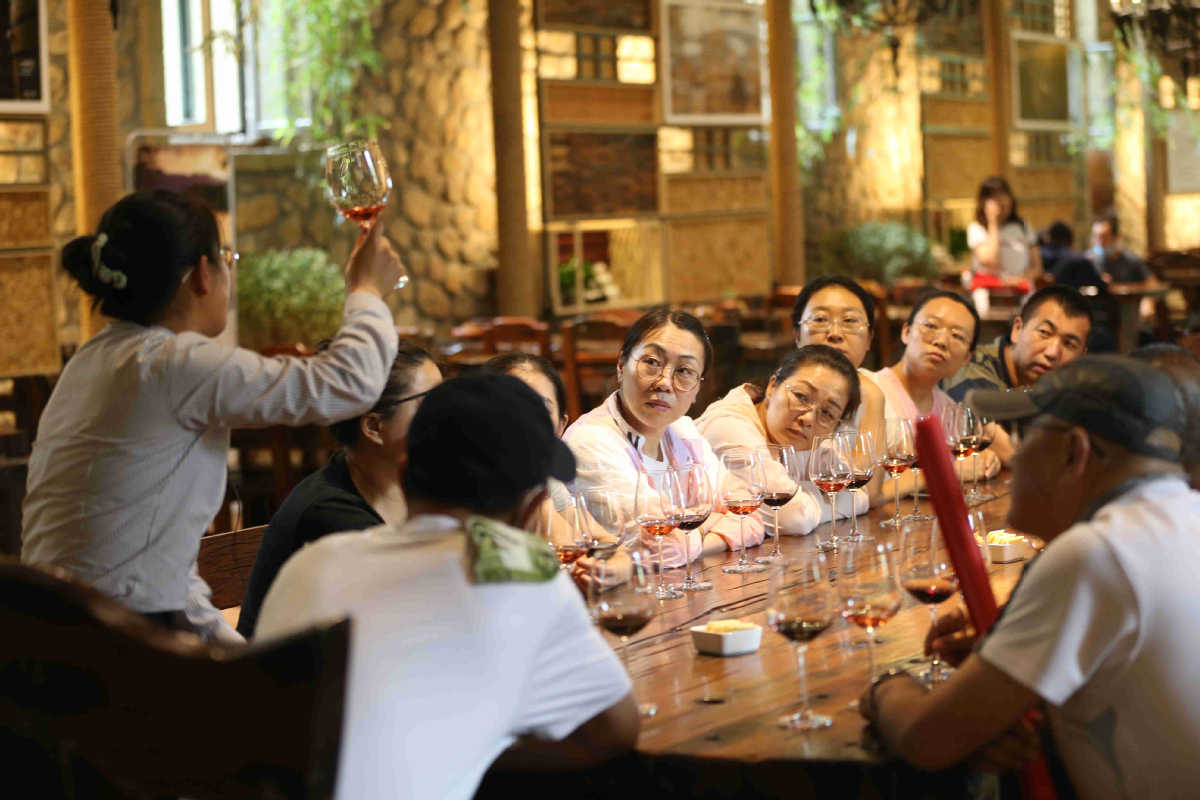Ningxia's wineries brew up vintage success


Boutique operations
In recent years, the local government has encouraged the establishment of boutique wineries with premium vineyards to counter the region's reputation for poor-quality wine, made on an industrial scale-a charge many owners hotly refute.
The timing for fine wine is ripe, as hundreds of family-owned boutique wineries are building their own brands and producing quality vintages with a wide range of tastes for the potentially huge markets at home and overseas.
In boutique operations, the owner or main vintner is involved in every step of the winemaking process, from planting to selling, and may even sample the product and discuss the taste with visitors to ensure a high-quality product.
"A glass of red wine is informative: From the color, we can see if the grapes were bathed in plentiful sunshine or precipitation and we can even smell the age of the vine," Shao Qingsong, CEO of Chateau Lilan, said.
"The best way to boost our competitiveness is to 'light up' every brand. We shine like dotted stars in the sky as separate wineries and sparkle like fire as a unified force in the Chinese wine industry."
Some owners believe that the wines produced in the region will gradually equal those from traditional heartlands, such as Bordeaux in France and the Napa Valley in the United States.
Since 2011, Ningxia has been leading the Chinese charge and winning medals at the Decanter World Wine Awards, the world's largest annual wine competition.
Last year, 60 Ningxia wines won bronze medals and higher, including six golds, according to DecanterChina.com.
In 2013, Ningxia became the first Chinese region to introduce a winery classification system, which ranks producers on five levels. By updating the rules and rankings every two years, the system-modeled on the Bordeaux Wine Official Classification of 1855, the world's leading method of grading wine-evaluates the level of Ningxia's vineyards to boost production of high-quality wine.
The region has also established China's first wine bureau-the Administrative Committee of the Grape Industry Zone of the Helan Mountain Eastern Foothills-to manage the sector's development.
The committee formulates policies and technical standards to regulate processes, from importation of seedlings and the management of vineyards and winery establishments to winemaking and marketing.
The Ningxia Agriculture and Rural Department and the regional finance department plan to provide 30 million yuan to subsidize local wineries and help them overcome difficulties caused by the COVID-19 epidemic.
Last month, the central government approved funding of 26.45 million yuan to support a research program that aims to make breakthroughs in winemaking techniques in the Helan Mountain foothills.
Professionals from the nine participating institutions and universities, including the Institute of Botany at the China Academy of Sciences, will provide environmental monitoring and study various technologies to help protect the vines from the winter cold.
Those technologies are expected to reduce the cost of grape cultivation by 20 to 25 percent and boost the overall earnings of the region's wineries by 25 to 30 percent, according to Xinhua News Agency.























